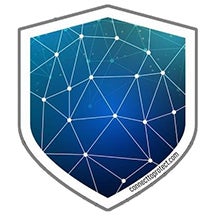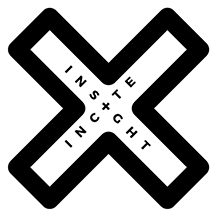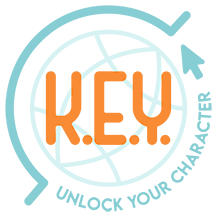Empowering students to counter hate with dynamic, integrated initiatives

The Labels Project was part of an entry in the McCain Institute's Peer-to-Peer: Protective Project competition
In February 2019, the Anti-Defamation League released “Online Hate and Harassment: The American Experience.”
According to the report:
- 53% of Americans said they had been subjected to hateful speech and harassment in 2018.
- 59% believe online hate and harassment are making hate crimes more common.
- 22% feel less safe in their community as a result of online hate.
Even more sobering for today’s students: More Americans have been killed or injured in mass school shootings since today’s college freshmen were born than were killed in the entire 20th century.
As part of its mandate to encourage and nurture character-driven leadership, the McCain Institute for International Leadership at Arizona State University worked with EdVenture Partners to sponsor Peer-to-Peer: Protective Project. EdVenture’s Peer-to-Peer programs empower competitions worldwide that invite university students to develop messaging and digital media campaigns to address hate, bias and extremism.
The goal of these campaigns is to create branding that is “credible, authentic, and believable to their peers and resonate within their communities.” For the McCain Institute-sponsored Peer-to-Peer competition, teams from eight universities across the nation submitted initiatives, products and tools developed to confront the related crises of hate and school-based violence.
On June 23, three teams — from Arizona State University, Johns Hopkins University and Missouri State University — presented their concepts in an online final competition before a panel of judges who determined first, second and third place. The teams would receive cash awards that would allow them to continue work on their projects.
The judges were:
- Ambassador Mark Green — executive director, McCain Institute.
- Nick Rasmussen — executive director, the Global Internet Forum to Counter Terrorism and senior national security fellow, McCain Institute.
- David Gersten — acting director, U.S. Department of Homeland Security Office of Targeted Violence and Terrorism Prevention.
- Beth Goldberg — research programs manager, Jigsaw at Google.
- Kim Dozier — global affairs analyst, CNN.
- Sofia Gross — public policy manager, SNAP Inc.
- R.F. “Rick” Shangraw Jr. — president, Cintana Education.
Each team provided a 15-minute video presentation of their project, then answered questions live from the panel of judges. The judges then selected first, second and third place, awarding prizes of $5,000, $3,000 and $1,000 to allow the teams to continue developing their concepts.
Before announcing the winners, Ambassador Green congratulated the finalists, telling them, “The Black Lives Matter movement protests have done a great service to America by forcing us all to look ourselves in the mirror, to admit that racism, inequality and injustice are not merely history; they're reality in too many communities across this country. Our namesake, John McCain, called on all Americans to unite against hatred and bigotry. I could not be more proud of these teams for answering that call and enlisting their communities to do the same.”
Third Place ($1,000): Johns Hopkins University — 'Connect to Protect'
Connect to Protect is an integrated digital marketing campaign designed to reduce the possibility of instances of targeted violence in the Johns Hopkins University community by establishing an environment students find inclusive and positive. The team created videos, social media challenges and a series of trivia events to foster community connectedness. View the Connect to Protect presentation.
What the team said:
Co-CEO Cecilia Camille Zayas told the Johns Hopkins News-Letter, “After conducting a survey, multiple in-depth interviews and a focus group, we decided to center our campaign around the idea of inclusivity and connecting with each other to protect each other, especially populations that are more vulnerable to targeted violence. We hope this campaign will make our campus and the surrounding community of Baltimore a more inclusive place where microaggressions and more targeted acts are not tolerated in any way, and instead people work to promote inclusion.”
What the judges said:
“With their remarkable project, Johns Hopkins used trivia to mobilize what they've referred to as a silent majority, to get them moving so they'll be silent no longer, and to show that they are a majority, and they are changemakers.”
Next steps:
“Connect to Protect will continue to raise awareness regarding racism by implementing trivia events at surrounding universities. By continuing to host trivia events, we hope to create a connected community and initiate discussion and change. With the current social and political climate, our hope is that our trivia events will inspire the participants to enact change themselves while learning about various issues.”
Second Place ($3,000): Arizona State University — 'Incite Insight'
The ASU team focused on violence originating in the self-identified incel culture. “Involuntary celibates” have allegedly been responsible for recent incidents of mass violence, including the May 20, 2020, shooting that wounded three at the Westgate Entertainment District in northwest Phoenix, Arizona. View the Incite Insight presentation.
What the team said:
Team member Camryn Lizik: “Some of our initial research findings of (students in) Arizona State introductory courses showed us there were very high rates of loneliness among our own student body. In conducting research of incels we found that this was an overlapping theme, so we chose to target our own student population because we believe there is quite a bit of overlap, and quite a bit of incentive for incoming freshmen who feel this way to perhaps look to incelism as a foundation for them.”
What the judges said:
“Arizona State University impressed all of the judges with how seriously it took the challenges that are presented by that term ‘incel.’ They were very purposeful in not using that term but instead getting at the problems it represents without turning off an audience to make sure they remain relevant. We were also impressed with the scalability built into their project.”
Next steps:
“Incite Insight has plans to expand. We’d like to continue gathering stories and to record additional episodes of the podcast. We’ve discussed the possibility of hosting a forum with ASU students to discuss violence, gender and loneliness, and are looking into online means to do so. Our success in the Peer-to-Peer competition validated the need for campaigns based on inclusivity and acceptance. Because of the financial prize that came with our placement, we will now have additional funding to promote the project and hopefully scale its impact.”
First Place ($5,000): Missouri State University — 'K.E.Y. Campaign'
Missouri State also chose incel culture as their focus, but decided to address the roots of its negative aspects in younger children. They enlisted parents and local school teachers in promoting their K.E.Y. campaign — Kindness Empowers Youth — an experiential learning program focused on teaching emotional intelligence, self-concept and healthy coping skills to elementary school students. View the K.E.Y. campaign presentation.
What the team said:
Team member Jordan Moore: “When we chose incel ideology as our focus we knew we didn’t want to talk about it directly to these third-, fourth- and fifth-graders. A big portion of the campaign was going to have to be educating the community about this growing concern of incel violence. That’s when we started going into schools, where you can start educating the teachers about it, and gradually explaining it to parents in a way that didn’t frighten them.”
Read an in-depth Q&A about the winning K.E.Y. campaign with Jordan Moore.
What the judges said:
“What impressed us all is the fact that you enlisted not just the targeted youth themselves, but parents and educators in this cause. We think there is remarkable potential for your project as well as the others. We challenge you to take this day and go higher and go further and we're looking forward to watching you succeed.”
Next steps:
“The award will be put back into the campaign to further develop our game and lesson plans … building out the game and making it more engaging for the kids. We just applied for a grant through the Department of Homeland Security, but we’re also looking for other grants to apply for — local grants in the St. Louis and Springfield areas or statewide in Missouri. We're in the process of becoming a 501c3, and team members are in conversations with educators in the Springfield area and elsewhere in Missouri to hopefully begin implementing these ideas in the fall.”
Written by Erik Ketcherside for the McCain Institute




